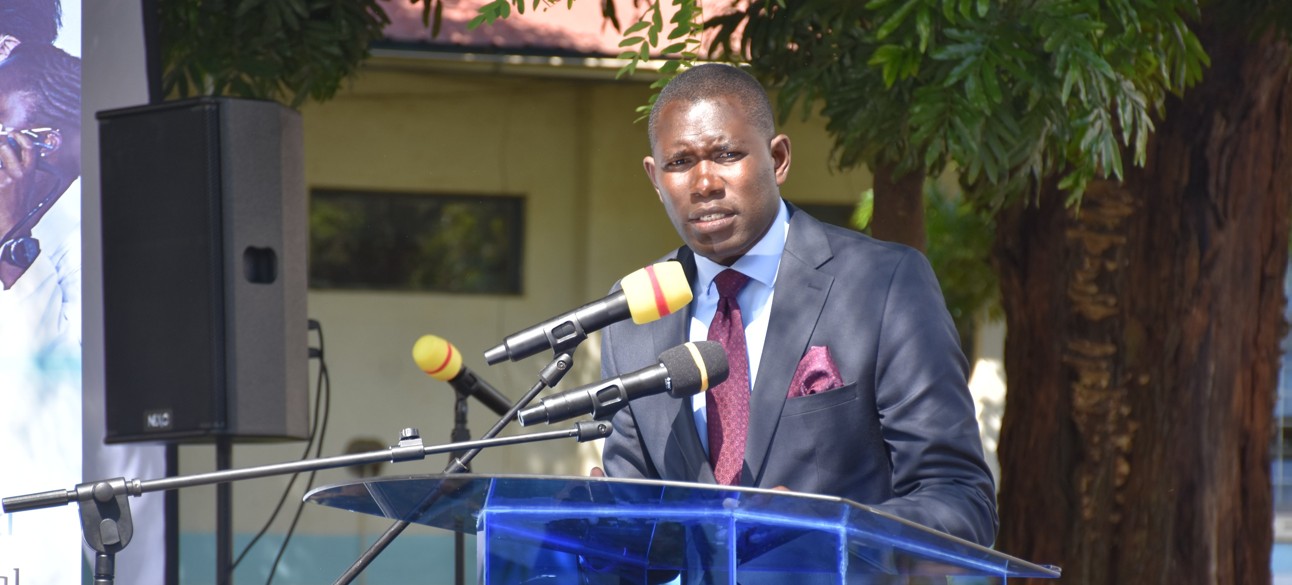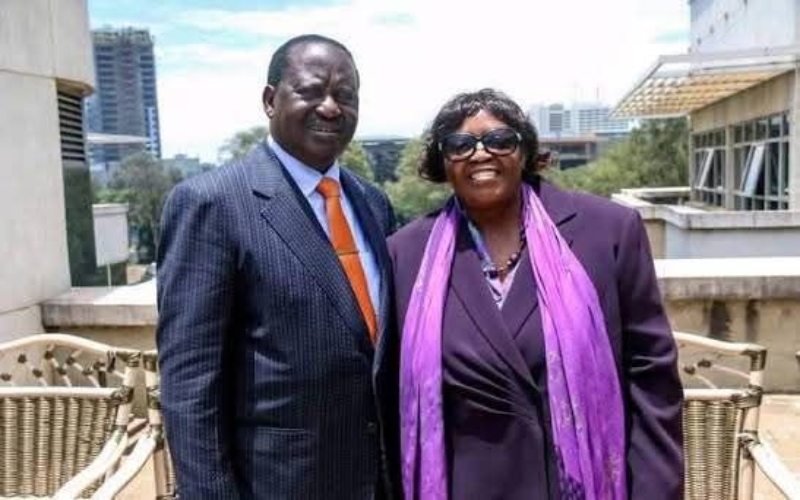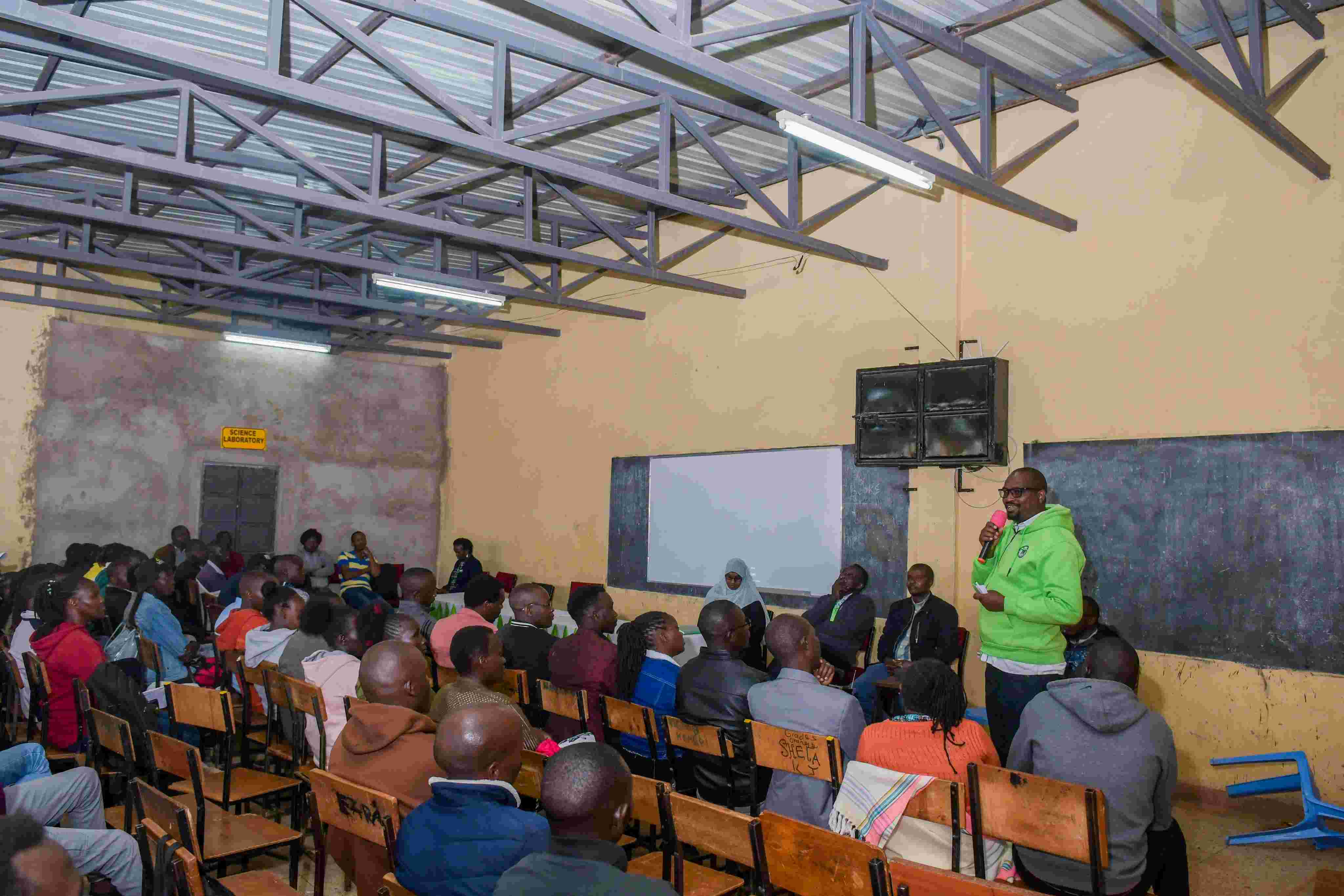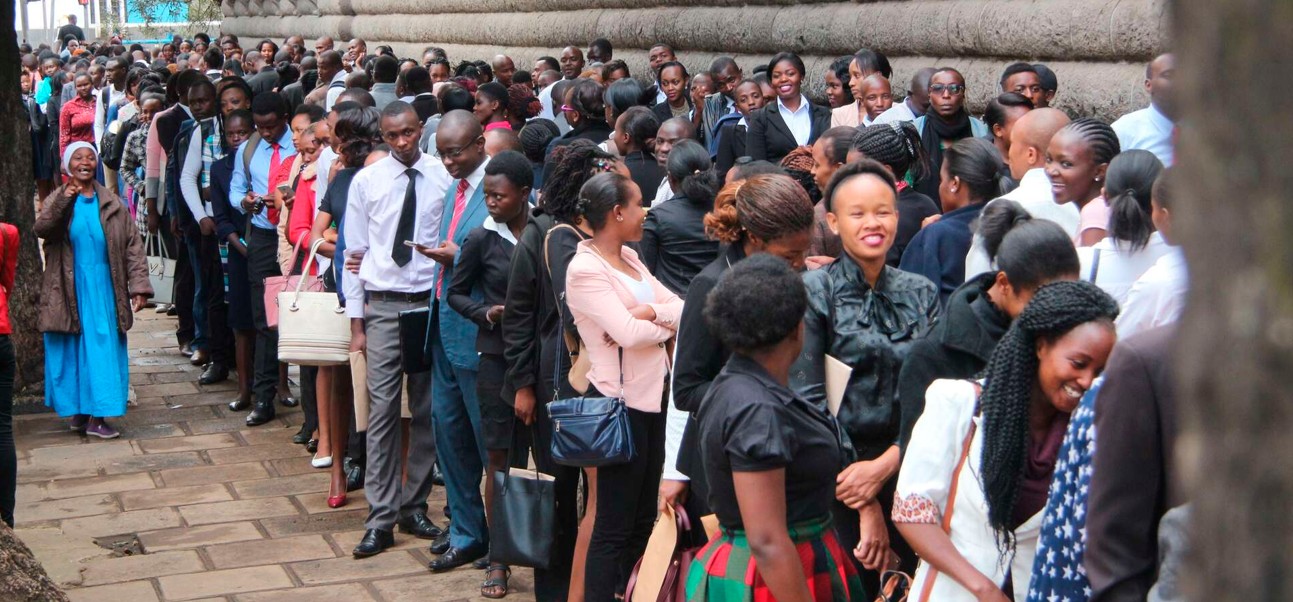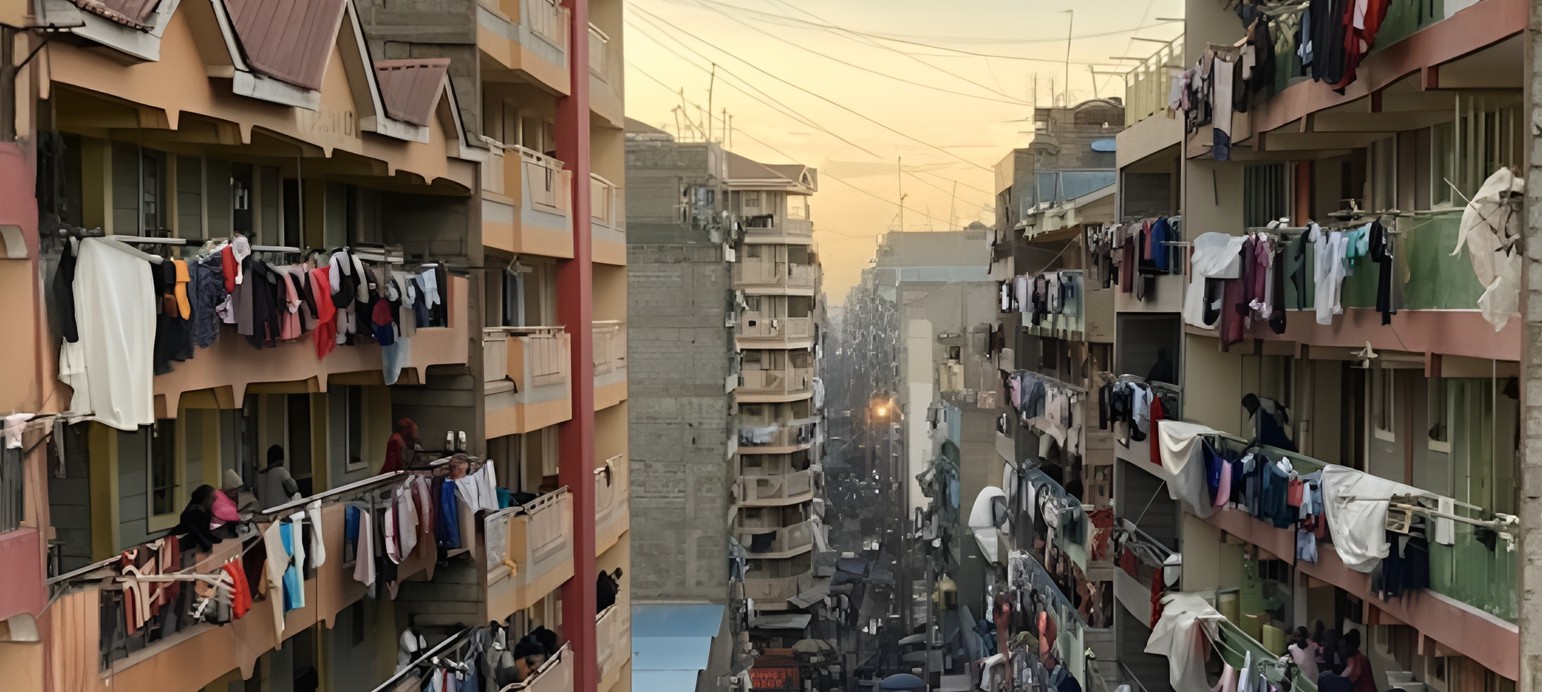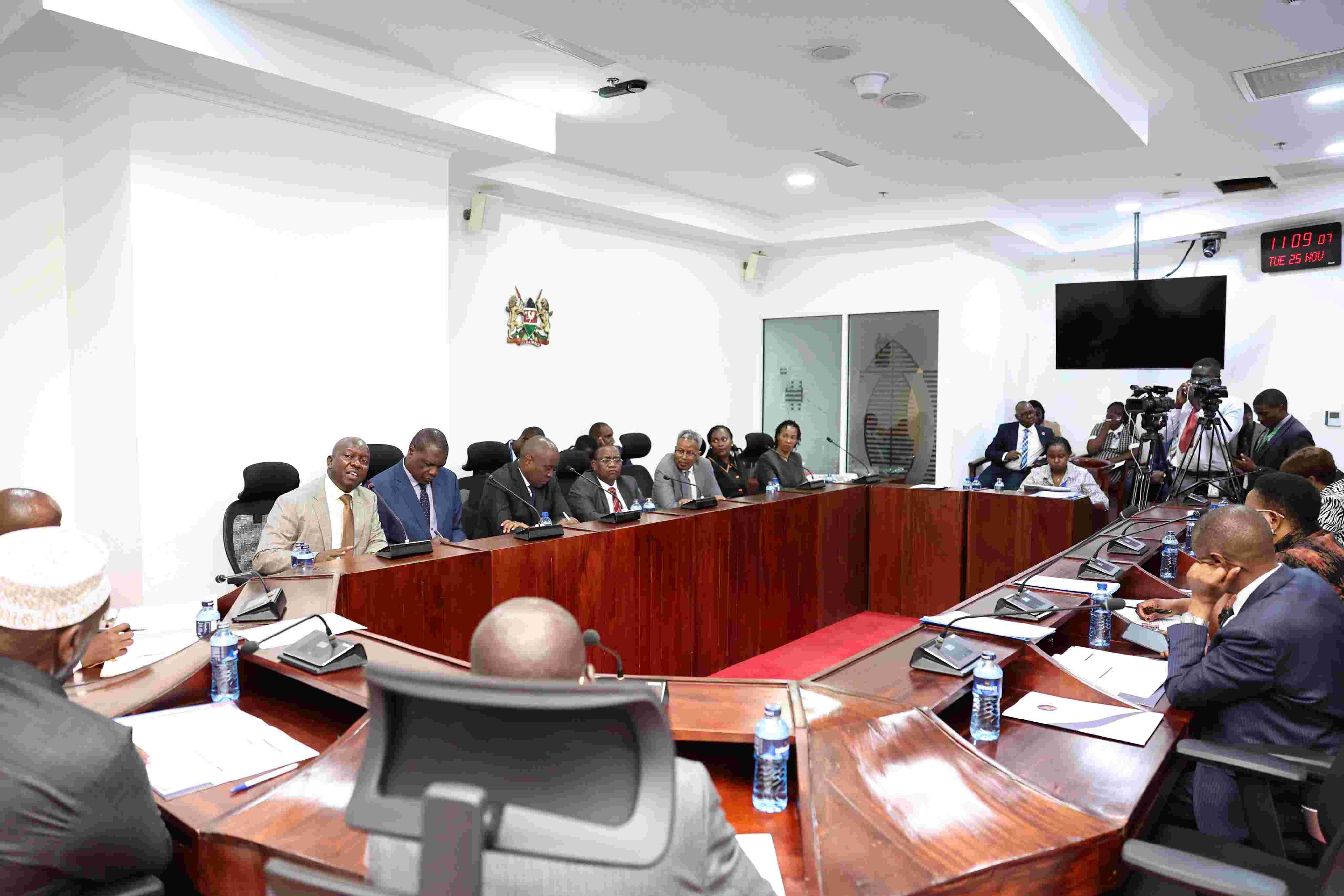TSC urged to stop relying solely on KCSE grades in hiring teachers
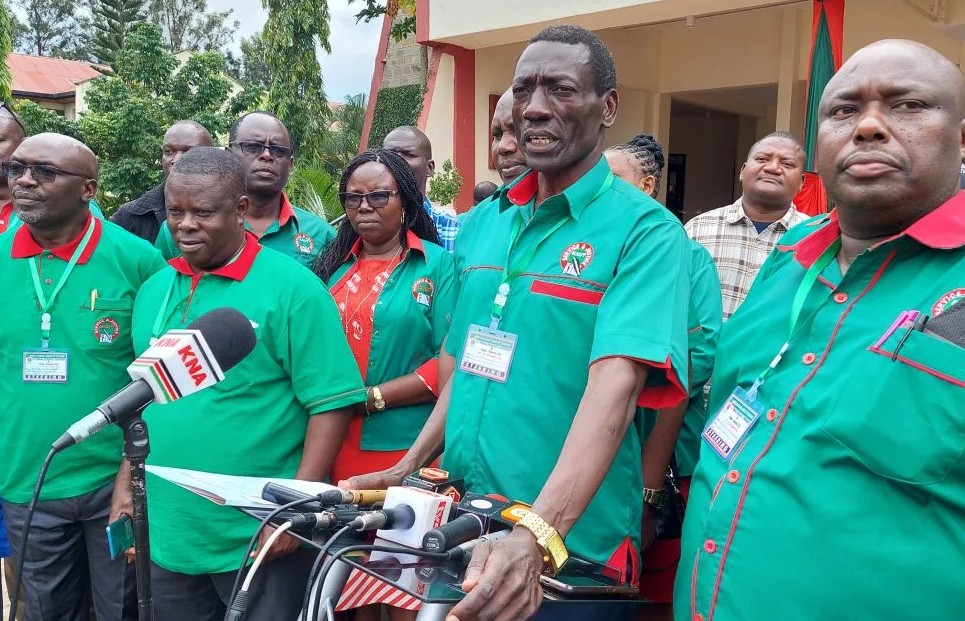
KNUT insists many qualified individuals are being unfairly locked out of the teaching profession despite having attained higher academic qualifications such as degrees and master’s degrees.
The Teachers Service Commission (TSC) has been urged to reconsider its teacher recruitment policy by placing greater weight on academic progression rather than solely relying on KCSE grades.
According to the Kenya National Union of Teachers (KNUT), many qualified individuals are being unfairly locked out of the teaching profession despite having attained higher academic qualifications such as degrees and master’s degrees.
More To Read
- Unions slam TSC over limited promotion slots as 131,000 teachers apply for 21,000 positions
- Senators demand permanent jobs for 20,000 junior secondary intern teachers
- Ruto announces recruitment of 24,000 more teachers by January to ease national shortage
- MPs accuse TSC of mishandling teachers' hardship allowances
- TSC unveils new policy for teacher transfers, aims to increase fairness and transparency
- Inside Ruto’s bag of goodies aimed at appeasing frustrated Kenyan teachers
KNUT Secretary General Collins Oyuu said the current criteria, where one must have scored at least a C (plain) in the Kenya Certificate of Secondary Education to qualify for recruitment as a diploma teacher, was outdated and discriminatory against those who have since advanced academically.
“Do you know that some of our university lecturers got D+ (plus) grades in KCSE but advanced their education until they became graduate lecturers? Surely, TSC, why are you barring teachers who scored a C (plain) in KCSE, but have gone on to graduate with a degree, from teaching Grades 7, 8, and 9?” Oyuu posed.
He maintained that the highest level of education achieved by an applicant should be the primary consideration during recruitment, noting that many teachers have sacrificed significantly to enhance their qualifications while in service.
“A teacher who decides to advance his or her qualifications sacrifices a lot. It involves studying late into the night while still teaching learners. We must have a serious conversation with TSC on this matter,” he told Nation.
To illustrate his point, Oyuu gave an example of a professor who had scored a C- in KCSE but pursued further education abroad and is now a respected scholar in religious education and Kiswahili.
“He studied at Kampala International University in Uganda, returned to Kenyatta University, and furthered his education through online learning at a university in the United States. He is now a professor. So what should count? It is the last qualification, not the KCSE grade,” he said.
He argued that judging applicants based solely on their KCSE results ignores other crucial factors that may have influenced a learner’s performance at the time.
“If the same teacher had attended a top national school, they may well have scored an A,” he noted.
Oyuu called on the Commission to rethink its recruitment standards and prioritise a teacher’s competency and latest academic achievements, particularly amid a staffing crisis in the education sector.
He revealed that due to the shortage of teachers, some are being forced to handle more than 100 learners in a single class, far exceeding the recommended ratio.
“This is far above the recommended teacher-to-learner ratio of 1:45 as set by UNESCO. We appeal to the Head of State, Dr William Ruto, to help bridge this gap,” he said.
At the same time, the union boss urged Junior Secondary (JSS) teachers to embrace cooperation with colleagues across primary schools, reminding them that all educators serve a common purpose.
“We urge our young men and women teaching in JS, which is domiciled in primary schools, to remember that a teacher is a teacher. Do not consider other teachers inferior,” he said.
Top Stories Today


